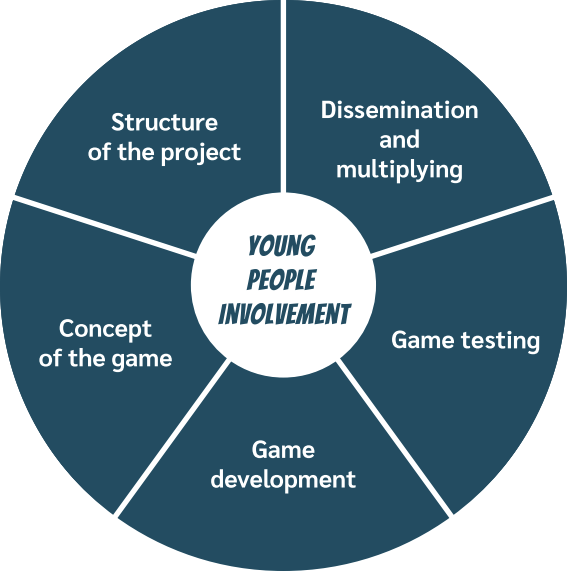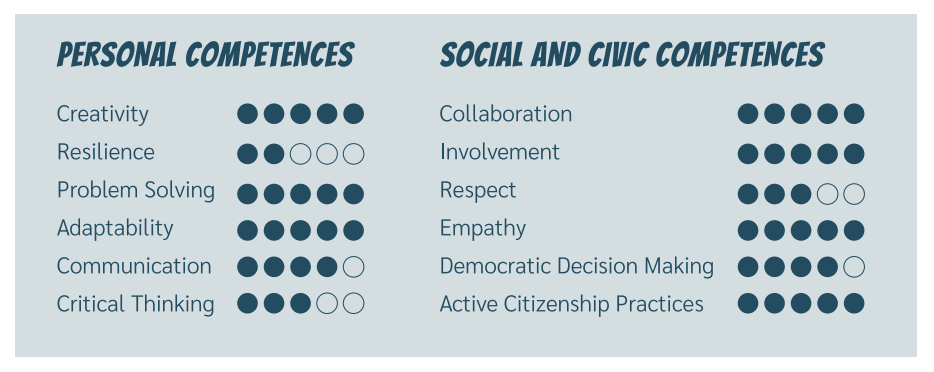1
GameON: Educational game design. Participative model
GameON: Educational game design. Participative model
Content
Based on our research, the GameOn partners produced seven models to approach game design. The Participative approach is one of them. Watch the following explainer video to learn more about this model:
Usually, the participative process is practised in non-formal education settings, where young people initiate the process and are involved in all phases of the game design.
The primary goal is to create a game that promotes social inclusion among other young people.
Following a participative approach, young people get involved in the following game design process stages:

Participative game design has unique features.
Process
Usually, young people get involved in collaborative group work by being guided in some phases.
Participants co-design and conduct joint research to gather information needed to create and validate the game's contents.
Games that are produced usually are used as a social inclusion tool. As a result, one unique game is created. The game topic is closely connected to the daily life of future players.
Such a game design approach requires a long development time that lasts from 6 months to more than a year.
Participants
Participative game design most often involves non-governmental organisations’ members or youth centres’ participants. They are, at the same time, game design promoters and participants.
Other actors
Volunteers and specific experts may get involved to help develop a game in some parts, for example, game concept, graphics, and coding.
Structure
Participative game design has open structures and activities that participants develop on the way. It's a mixture of workshops, collaborative work in meetings and communications channels, and feedback from experts.
Guidance
Association members and sometimes experts support participants in developing specific processes or tasks.
Competences
These are some personal, social and civic competences young people can develop in Participative game design projects:

Examples
This activity is part of the wider educational effort of the international partnership “GameOn” to promote inclusion, participation, and critical thinking through game design. Learn more about this partnership here.
Expert partners:
Nexes (ES) – the lead partner, Idealúdica (ES), Universitat de Barcelona (ES), BalkanIdea Novi Sad (SR), Nectarus (LT), Associazione Interculturale NUR (IT).
Co-funded by the Erasmus+ Programme of the European Union
Resources
Get activity badge
GameON: Educational game design. Participative model Get this badge
Owners of this badge learned more about the Participative game design model and reflected upon the existing game design practice and their own experience.
The evidence of completing this activity is included in the badge and was reviewed and verified by the organisers.
This activity is part of the wider educational effort of the international partnership “GameOn” to promote inclusion, participation, and critical thinking through game design. Learn more about this partnership here.
Tasks
Task no.1
Evidence verified by: self-approved
Share your thoughts on the following questions to earn the activity badge:
What elements of the Participative model did you discover?
Could this game design model be used in your educational work with your target group?
Organisers
GameOn - Game Design for Inclusion
Change to another language:
